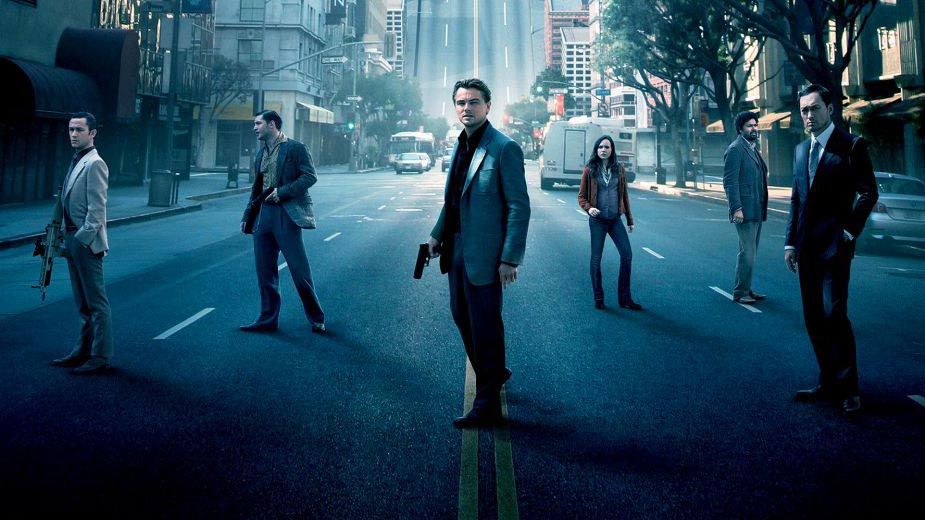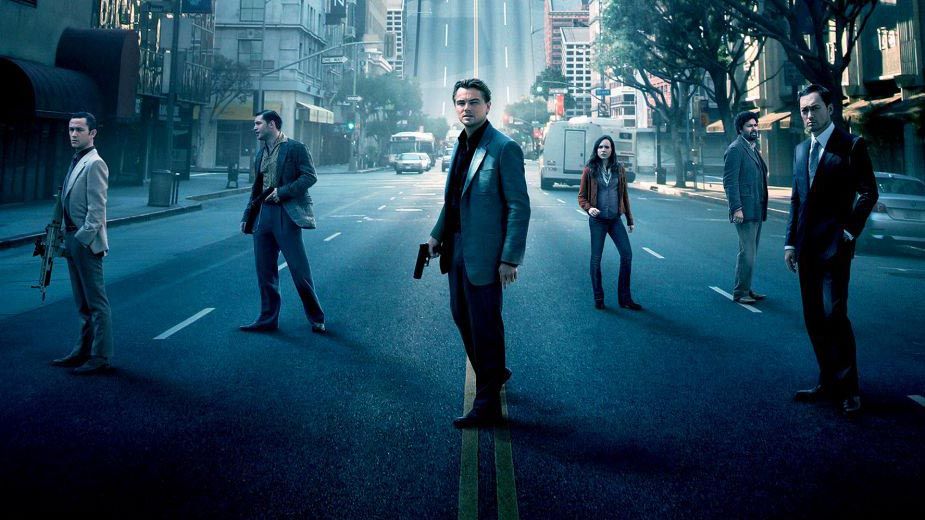
Christopher Nolan’s Tenet, after a series of very sensible delays, will finally release in theaters this August or September depending on where you live. Even if the notion of going to the cinema might feel strange to you at this point, it’s largely seen as the movie that’ll supercharge theater attendance after they closed worldwide back in ‘spring’, due to the ongoing health crisis.
I have really mixed feelings about going to theaters again right now, especially in England where I feel like people aren’t taking social distancing rules or mask wearing that seriously. But damn: I want to see Tenet a lot.
In the meantime, I’ve been dipping into Nolan’s older movies again. Last weekend I rewatched 2010’s Inception at exactly the right moment. I don’t think I’ve seen that film since maybe 2014, when Interstellar was released, and it means I’d forgotten enough of the movie to truly enjoy it again.
If you’re in the US, Inception recently left Netflix and landed on Amazon Prime Video (where it was already available in the UK), and holy crap: watch that film again. If it’s been a minute since you’ve seen it, you’ll get a lot out of repeating that experience.
Inception is about Dom Cobb (Leonardo DiCaprio), an ‘extractor’ who steals secrets using a type of technology that allows him to infiltrate and shape the dreams of his target. The bulk of the film is about Cobb’s complex efforts to plant an idea in a subject’s subconscious – businessman Robert Michael Fischer (Cillian Murphy) – in order for him to escape the law and reunite with his children. Meanwhile, Cobb is haunted by visions of Mal (Marion Cotillard), his deceased wife, whose death he feels responsible for.
Essentially, Inception is a heist movie set inside dreams (inside more dreams). The film doesn’t waste time explaining how or why its fictional technology exists – instead, it just shows you what the technology does. A perfect introduction to the film shows how the dreams of Inception are layered – that the target can wake up in one dream layer, only to still be dreaming in another, perhaps without realizing it. Each dream layer is a fictional scenario created by an architect. Secrets buried deep in the subconscious mind are represented by safes within the dream, which only the target can open.
The rules are very clearly and cleverly established early on by Nolan – and then broken for dramatic effect. What if the target is told they’re in a dream, for example? The film plays with every variant of what can go right or wrong while you’re exploring someone’s subconscious mind.
Every part of Inception could’ve been goofy if it was handled badly – but it makes an enormous difference having the logic of the dreams explained by an actor as good as DiCaprio. The audience is also given several ways into understanding this world by the film: by Saito (Ken Watanabe), a curious billionaire who hires Cobb after seeing how effective his methods of extraction can be, and Ariadne, Cobb’s new architect, who constructs MC Escher-esque scenarios for the dreamer to get lost in.
Weirdly, the only implausible thing about this out-there film is that Cobb’s dad is played by Michael Caine.
Is Nolan overhyped?
[embedded content]
The key thing about Inception is that it’s an entertaining film – and I wouldn’t describe all of Christopher Nolan’s movies that way. Interstellar, with its flabby first act and intentionally glacial pace, is an amazing audiovisual experience and a thoughtful sci-fi film, but I wouldn’t ever watch it to be entertained.
Inception is a good reminder that Nolan is as much a popcorn blockbuster filmmaker as he is a prestige director. Delicately walking that line between the two, in fact, is exactly why he’s in the position to make a film like Tenet now, where he can spend a reported $200 million of Warner Bros’ money on an original sci-fi concept he came up with.
Inception was just as much of a punt at the time. Nolan’s cachet was high after 2008’s The Dark Knight, but Hollywood didn’t have a great recent history of bankrolling original blockbusters. And hell, it doesn’t now, with Disney remaking its greatest hits in earnest and superheroes dominating the box office. There’s no shortage of great filmmakers working today – but none are making original films on scale Nolan is.
When Inception came out, I remember reading a John Landis interview where the Trading Places director said Inception was “not original”. Landis was otherwise effusive, calling Nolan a smart filmmaker, but he did say something that stuck with me. “When he makes a couple of unsuccessful ones in a row, he’ll be in the same situation as everybody else. More power to him. I like smart filmmakers and I think he’s great.”
10 years later, Nolan hasn’t had an unsuccessful film yet. After Interstellar, I thought his filmmaking was going to push in more of a self-indulgent direction, where every picture would be an increasingly hard-to-watch three-hour epic – but then he made Dunkirk, a lean 106-minute war film with very little dialogue, which is arguably his best work to date.
Nolan’s films are certainly overhyped to the point where just hearing people talk about them can become unbearable. Remember when everyone did impressions of Tom Hardy’s Bane for five years? Out there, right now, somewhere, a guy on a very unsuccessful first date is doing that Bane impression at the dinner table.
The thing is, though, even with the eyebrow-raising politics and wonku plotting of a film like The Dark Knight Rises, or the fair criticism that he doesn’t seem that interested in stories about women, Nolan’s films do live up to the hype.
With Tenet, the film’s importance to theaters’ future is probably going to end up being the narrative that defines the discussion around the movie this year, regardless of how interesting it is.
Watching Inception again, though, is a reminder that the hype around Nolan’s movies only matters in the short term. I think I enjoyed Inception more now than I did 10 years ago, simply because I don’t have to hear people talk about it any more. If Tenet manages to hit those same heights, all we’ll be talking about in 10 years is the quality of the film itself.
Inception is now streaming on Amazon Prime Video in the US and the UK.
